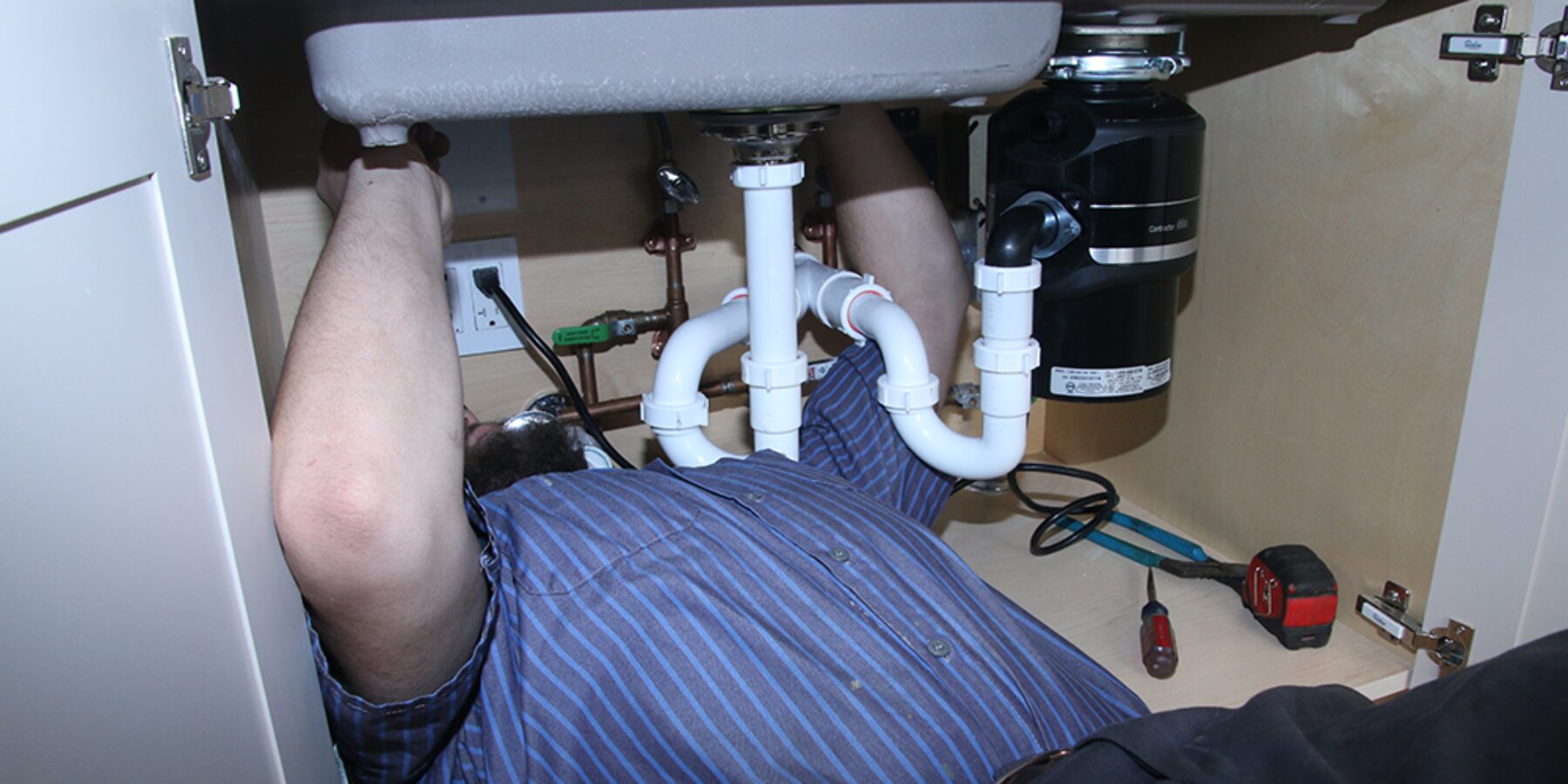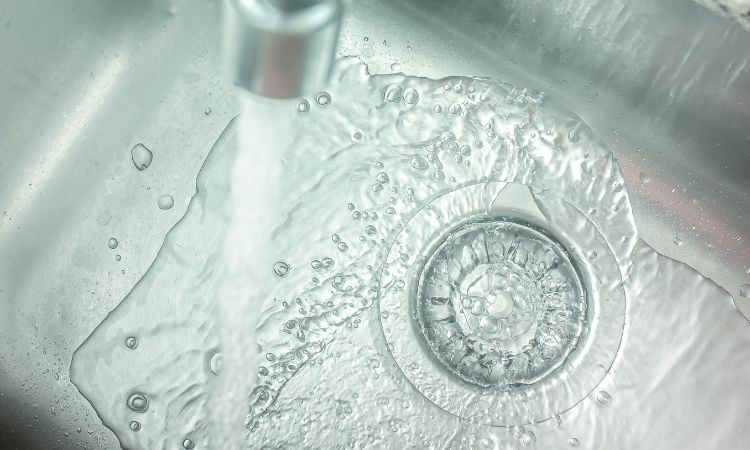Key Advice On How To Correct A Slow-Draining Sink
Key Advice On How To Correct A Slow-Draining Sink
Blog Article
How do you actually feel with regards to How to Fix a Slow Draining Sink?

Intro
We've all been there: You're cleaning your teeth or washing your hands, and you observe the water merging in the sink. Rather than promptly swirling away, it sticks around, transforming your once-refreshing early morning regimen right into a mini overload scene. A slow-draining sink isn't simply irritating; it's often an indication of bigger plumbing issues prowling beneath the surface. The good news is that many slow-draining sinks can be repaired with a little knowledge, a few fundamental devices, and some perseverance. Prepared to tackle this job head-on? Let's roll up our sleeves and dive right in.
Understanding the Causes of a Slow-Draining Sink
Prior to you start poking around in your pipelines, it helps to know what might be triggering the slowdown. Understanding the origin makes it less complicated to select the ideal fix.
Usual Offenders Behind Slow Drain
So, what's obstructing points up? Normally, it's a mix of daily particles-- think hair, soap residue, tooth paste residue, and remaining food bits. Over time, these tiny bits collect and hold on to the pipe walls, progressively tightening the passage and making it harder for water to travel through. In some cases, natural resource from difficult water can likewise contribute to the gunk, creating the ideal tornado for stubborn clogs.
When is it Time to Take Action?
If you see the water draining pipes slower than normal, it's a good concept to intervene faster rather than later on. Waiting as well long can result in finish blockages, unpleasant smells, or even pipeline damages. If the water takes greater than a couple of seconds to clear out after turning off the faucet, consider it a warning and prepare to place on your do it yourself hat.
Devices and Materials You'll Need
The right devices make all the difference. Luckily, you won't need a fully stocked plumbing technician's van to do the job.
Important Tools for DIY Repairs
A plunger is your best beginning factor. A little, sink-sized plunger creates suction that can dislodge minor clogs. For even more relentless obstructions, a drain snake (occasionally called a plumbing professional's auger) functions marvels. A pair of handwear covers, a flashlight, and maybe a set of protective safety glasses are also useful.
Recommended Cleaning Solutions
Light recipe soap and hot water can aid break down oily build-up. A blend of baking soft drink and vinegar is a time-tested natural remedy, and enzymatic cleaners offer a more green method. Keep chemical drain cleaners as a last hope, as they can be rough on your pipelines.
Safety First: Precautions and Preparations
Prior to you launch into unclogging setting, consider security. You're taking care of possibly unclean water and particles, so slip on a set of handwear covers. If you're utilizing chemical cleaners, make sure the room is well-ventilated and follow the instructions on the tag.
Safety Equipment and Workspace Configuration
Set some old towels or dustcloths around the sink area to catch splashes. Eliminate any items that could enter your means, like soap dispensers or toothbrush owners. Make sure you have good lights-- order a flashlight if required.
Step-by-Step Guide to Repairing a Slow-Draining Sink
Now, let's get into the nitty-gritty. This detailed procedure will guide you via straightforward methods to recover your sink's drainage.
Action 1: Eliminate and Tidy the Stopper
Frequently, the stopper (that small plug you push down to block water) is the first perpetrator. Remove it meticulously and wipe any type of hair or crud trapped around its base. Wash it completely prior to putting it back in position.
Step 2: Use a Bettor to Dislodge Particles
Got that plunger prepared? Placement it over the drain and provide it a couple of company pumps. The idea is to create suction that can loosen any kind of obstruction. If you see little bits of debris drifting up, you're on the best track.
Step 3: Try a Drainpipe Serpent or Cord Wall Mount
If the bettor does not do the trick, it's time to bring out the drain snake. Carefully feed it into the drain and twist as you go. You may really feel some resistance-- that's most likely the clog. Maintain turning and drawing up until you eliminate the obstruction. If you don't have a drainpipe serpent, a corrected the alignment of cable hanger can operate in a pinch.
Tip 4: Apply a DIY Drain Cleanser
A natural cleaner made from cooking soft drink and vinegar can break down recurring crud. Pour half a mug of cooking soda right into the drain, followed by half a mug of vinegar. Let it fizz for around 15 minutes, after that flush with warm water. This chemical reaction often does wonders for small clogs.
Step 5: Reconstruct and Test the Sink
Placed everything back together and run the faucet. Does the water now swirl away at a decent speed? If yes, offer yourself a pat on the back. If not, don't anguish-- there are still a couple of more tricks up your sleeve.
Alternate Approaches for Stubborn Clogs
Not all clogs are created equal. If your sink still refuses to comply, take into consideration these alternative solutions.
Baking Soda and Vinegar Approach
We currently discussed this, but it's worth noting again. This gentle, environmentally friendly technique is more secure than chemical cleansers and usually fairly effective.
Enzymatic Drain Cleaners
Enzyme-based cleansers use natural germs to digest raw material. They're an excellent selection if you're wanting to avoid rough chemicals. Simply remember, they may take a bit longer to work their magic.
Chemical Drainpipe Cleaning Company: Pros and Cons
Chemical cleaners can blast through challenging clogs fast, however they're not without disadvantages. They can generate heat and fumes, damages pipelines if made use of excessively, and position environmental dangers. Utilize them sparingly, and always comply with the instructions carefully.
Preventive Measures to Maintain Your Sink Flowing
Avoidance is the very best cure. By taking on a few simple habits, you can keep your sink from slowing down in the first place.
Regular Cleansing Routines
Clean down the sink container and component location on a regular basis. Get rid of hair or food bits before they have a possibility to wash down the drainpipe.
Avoiding Damaging Substances Away
Reconsider prior to unloading coffee premises, grease, or coarse vegetable scraps down the sink. These culprits hold on to pipe wall surfaces, creating clogs in time.
Regular Maintenance Checks
Schedule a quick month-to-month assessment. Run hot water via the sink for a few minutes, paying attention to the flow. If it appears slow-moving, act quickly prior to it comes to be a full-blown blockage.
When to Call a Specialist Plumbing
Often, despite just how hard you try, that block simply will not move. That's when it's time to generate the pros.
Indicators That Indicate a More Major Concern
If your sink drains pipes slowly in spite of several attempts, or if you observe water backing up in other components (like your shower or bathroom), you may have a much more major pipes concern prowling deeper in the system.
Balancing DIY Initiatives with Specialist Assistance
While DIY can conserve you cash and provide a sense of achievement, there's no embarassment in calling an expert. An expert plumbing professional can evaluate your entire pipes arrangement, ensuring there's no underlying damages or long-term trouble that could cost you much more in the future.
Comparing Costs and Long-Term Solutions
Before making a decision, take into consideration the big picture. An inexpensive, quick fix might solve the problem temporarily, but buying a more long-term remedy can conserve you cash and anxiety in the future.
Considering the Expenditures of Do It Yourself vs. Expert Repairs
Do it yourself fixes frequently set you back little more than the price of a plunger or a bottle of baking soda. Expert solutions, on the other hand, featured a cost yet might protect against repetitive problems and expensive repair services later.
Purchasing Quality Fixtures and Upgrades
If your sink's design adds to regular blockages, it might be worth upgrading to higher-quality fixtures or altering the pipes format. Consider this a financial investment in your home's performance and convenience.
Final thought
A slow-draining sink can seem like a small irritation, yet it's commonly an indication that your pipes needs a little tender loving care. By understanding the source, employing the right tools and methods, and committing to basic safety nets, you can maintain your sink streaming openly. And when all else falls short, never be reluctant to call in a professional-- your home's pipes deserves the financial investment in care and upkeep.
Three Common Ways to Fix a Slow Drain
Baking Soda Method
Boil a full pot of water. Measure out cup of baking soda and pour it down the drain. Then take cup of the magical cleansing substance known as white vinegar and drop that down there too. Allow the mixture to fizz in the drain for five minutes as the vinegar and baking soda combine. Now dump in that whole pot of boiling water. This combination of cleaning substances should clear out anything that is causing your sink to drain slowly. If it doesn t...
Zip-It
If the baking soda method doesn t clear out your drain, it may be because a significant amount of hair and/or other debris has collected there and you need to remove it. Purchase a Zip-It tool at any home improvement or hardware store and insert it into your drain. It will catch any collected hair or debris that s blocking the flow of water. Pull it out. If it s got a big clump of hair, etc. on the end, you ve probably got your culprit.
Drain Cleaner
If these methods don t work, there is the standard drain cleaner that you can also buy in a hardware store or even your local grocery store. It s better if you can use a household solution, but these drain cleaners often work in a pinch. They re very simple to use. You generally just dump them in your drain and wait. If even this method is not effective, it may be time to call the plumber.
https://www.mrrooter.com/oneida/about-us/blog/2017/july/three-common-ways-to-fix-a-slow-drain/

We hope you liked our section about 7 Ways To Fix A Slow-Draining Sink Before You Call A Plumber. Thanks a ton for taking the time to read through our article. If you liked our post please be sure to pass it around. I treasure your readership.
Click Here Report this page